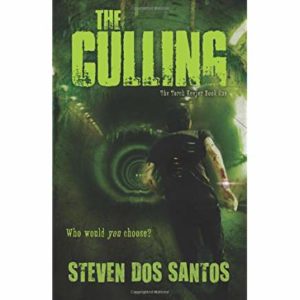 For the past three years, I’ve been part of the group led by Edi Campbell to put together the We’re the People Summer Reading List. With each of our lists, we have sought to highlight books created by authors and illustrators of color. This is especially important now because the efforts of We Need Diverse Books and other activism has led to an increase in the representation of African-American, Asian-American, Latinx, and Native American protagonists in children’s and YA books — yet it has not led to an increase in authors and illustrators of color creating these books. Recently-released statistics from the Cooperative Children’s Book Center shocked me because so many of these new books are coming from white authors and illustrators. I remember two years ago when some prominent white authors called on their “bestselling” colleagues to diversify what they write. This felt more like the exploitation of a trend, and while it’s valuable for children of color to see themselves reflected in books (as long as the authors have done their homework), it’s not valuable for the same children to see people like themselves shut out of creating those books, of telling their own stories to the wider world.
For the past three years, I’ve been part of the group led by Edi Campbell to put together the We’re the People Summer Reading List. With each of our lists, we have sought to highlight books created by authors and illustrators of color. This is especially important now because the efforts of We Need Diverse Books and other activism has led to an increase in the representation of African-American, Asian-American, Latinx, and Native American protagonists in children’s and YA books — yet it has not led to an increase in authors and illustrators of color creating these books. Recently-released statistics from the Cooperative Children’s Book Center shocked me because so many of these new books are coming from white authors and illustrators. I remember two years ago when some prominent white authors called on their “bestselling” colleagues to diversify what they write. This felt more like the exploitation of a trend, and while it’s valuable for children of color to see themselves reflected in books (as long as the authors have done their homework), it’s not valuable for the same children to see people like themselves shut out of creating those books, of telling their own stories to the wider world.
The 2017 list of recommended children’s and YA books by authors and/or illustrators of color has just been released, and you can find it here. With this list, we have tried to include a wide variety of genres – contemporary, historical, and speculative fiction as well as nonfiction. In the dystopian category, one of the books featured this year is Steven dos Santos’s The Culling, the first volume of a series set in a future totalitarian state where the strong rule and the weak are exploited and then eliminated.
Lucien (Lucky) Sparks will do anything to protect his younger brother, Cole. So when his former school friend and love interest Cassius Thorn, now a high-ranking Imposer, comes to town to select new recruits, Lucky tries to meet with him to obtain extra rations and better housing for Cole and the neighbor woman, Mrs. Bledsoe, who has cared for the boys ever since their parents died. Things go terribly wrong, though, when Lucky encounters rebel Digory Tycho, and both are recruited – along with three other teens – for a fight to the death. Like the rest of the Empire’s population, these recruits, along with the people they love most (called their Incentives) are to be culled.
The Culling is filled with action, betrayals, revelations, and lush description of a dystopian world where most people die from violence or natural causes before the age of 40. While much of the story line may seem familiar to readers of the Hunger Games trilogy, the characters stand on their own and the LGBTQ themes break new ground. Lucky finds himself attracted to Digory, who in turn has a husband. Interestingly, legal same-sex marriage is virtually the only right the residents of the Empire have, and dos Santos’s novel shows that such a right is meaningless if people have no power or dignity in their lives and if the State can kill with impunity.
Since The Culling appeared in 2013, two more books have joined dos Santos’s Torch Keeper series, The Sowing (2014) and The Raising (2016).